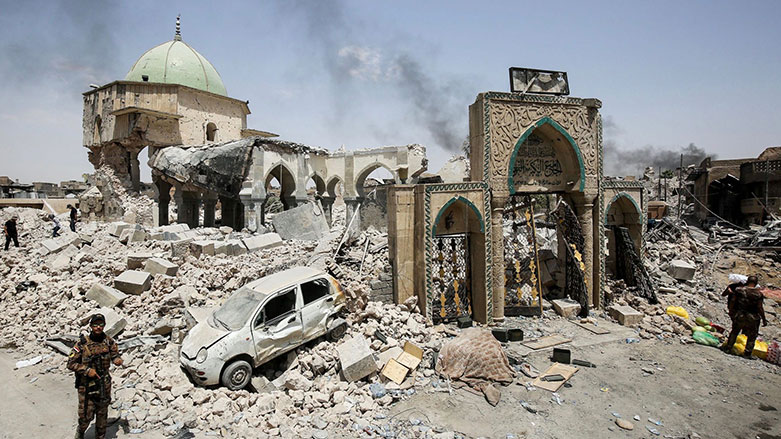Conditions that led to rise of IS remain in Iraq, Syria: US general

ERBIL, Kurdistan Region (Kurdistan 24) – A top US-led coalition commander has warned that the Islamic State (IS) remains a threat in Iraq and Syria in his New Year’s message, adding the current instability could allow for their re-emergence.
Lt. General Paul Funk, on the anti-IS coalition’s Facebook page, claimed that “the conditions remain present for [IS] to return, and only through coalition and international efforts can the defeat become permanent.”
In early December, Iraqi Prime Minister Haider al-Abadi declared “final victory” over the militant group in Iraq.
However, since then, there have been several sleeper cell attacks and incidents in liberated areas, notably the disputed city of Hawija.
In its New Year’s statement, the coalition added that its contribution would now consist primarily of training efforts that have so far prepared 126,500 in the Iraq Security Forces and another 12,500 in Syria.
Last week, Abadi claimed the militant group’s emergence in Iraq was due to corruption in the country, which he likened to a plague.
Terrorism experts warn the militant group’s threat remains active in the region and the US-led coalition cautioned that militants were moving freely in the desert areas bordering Iraq controlled by regime forces and would be adapting insurgency tactics in the country.
Kurdish officials also noted that ongoing tensions between Erbil and Baghdad would contribute to the reemergence of IS or similar groups in Iraq.
Since the military takeover of Kirkuk Province by Iraqi forces and Iranian-backed Shia militias on Oct. 16, 2017, the security situation has drastically deteriorated in disputed areas.
Local officials have claimed IS cells have returned to the town of Hawija, southwest of Kirkuk.
The military coordination between Erbil and Baghdad has stopped since the Region held an independence referendum on Sep. 25, 2017, which won overwhelming support for secession from Iraq.
Baghdad refused to recognize the vote and instead responded by imposing collective punitive measures against Kurdistan, including the use of military force in disputed areas.
Editing by Karzan Sulaivany
